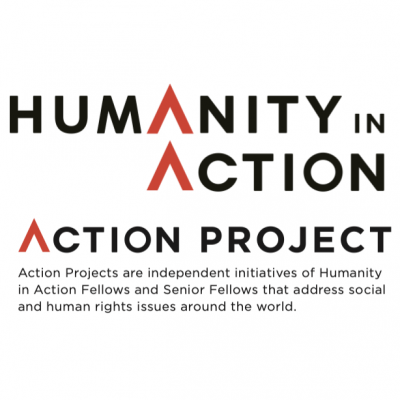Article
Over 200 million women and girls are affected by female genital mutilation (FGM) in over 70 countries around the world. FGM includes any non-medically necessary procedures on female external genitalia and can range from removing the clitoris to the removal of most of the external genitalia. In Germany alone, at least 50,000 women and girls are affected, according to a study from 2016.
FGM is a complex issue with complex socio-cultural, medical, and psychological aspects to consider. In order to be able to support patients who suffered from FGM, it is essential for medical professionals to educate themselves on the topic. Senior Fellow Mara Franke undertook this action project with the goal to facilitate this education, especially for medical students, and to provide an easily accessible entry point to this very complex topic.
Her doctor was shocked when they saw that FGM had changed her anatomy and did not offer any adequate support or interaction, instead telling her to leave the office.
In 2018, Mara Franke heard an episode of one of her favorite podcasts featuring an interview with Fadumo Korn, a woman born in Somalia but currently living in Germany. Fadumo Korn is one of the most prominent activists against FGM in Germany and the story of how she got there was difficult to hear. Having undergone FGM as a young girl, Fadumo recounted the story of her first visit to an OB-GYN in Germany on the podcast. Her doctor was shocked when they saw that FGM had changed her anatomy and did not offer any adequate support or interaction, instead telling her to leave the office.
This story made Mara realize that many, if not most, of her fellow medical students had little idea on how to adequately treat a patient with FGM, especially because many had probably never even heard of FGM in the first place. This sparked Mara’s interest in making education on FGM more widely available to medical students in Germany, to prepare them in case they encountered a patient who had undergone FGM.
This sparked Mara’s interest in making education on FGM more widely available to medical students in Germany, to prepare them in case they encountered a patient who had undergone FGM.
Originally, Mara had designed an in-person lecture series at the Charité University in Berlin, featuring lecturers who deal with FGM from various perspectives. However, due to the coronavirus pandemic, all in-person teachings at the university had been suspended for at least a year, prompting her search for an alternative. At the same time, a popular lecture series on global health for medical and non-medical students in Germany was being organized as an online event, giving Mara the idea to partner with them, since she had already helped organize the Global Health lecture series for several years.
While Mara had originally planned to organize several lectures, due to the scheduling and time limits of the Global Health lecture series, only one lecture could ultimately be realized. Dr. Christoph Zerm, who had been interested in supporting the in-person lecture series at the Charité, agreed to hold the lecture online and to structure it as a comprehensive overview of FGM.
Fadumo had recommended that Mara speak with Dr. Christoph Zerm about being a speaker for the event. A German gynecologist with many years of experience in FGM, he became an ideal partner for the project. Dr. Zerm was more than happy to help and his vast experience in educating fellow doctors and medical students on female genital mutilation was a welcome addition to the Global Health lecture series.
There is a possibility that the lecture series will continue online throughout the next year, with the chance to organize another lecture on female genital mutilation involving other experts in the field.
The greatest asset of the online platform was the number of people the lecture could reach. Instead of the 50-60 people expected for the in-person lectures, over 150 people listened to the live lecture. Afterward, even more people watched the recorded lecture. There was so much interest in the topic that a second, follow-up appointment will be organized to answer additional questions and focus on several aspects that were touched on in the first session.
There is a possibility that the lecture series will continue online throughout the next year, with the chance to organize another lecture on female genital mutilation involving other experts in the field, and thus educating more students on the complexity and importance of the topic.




